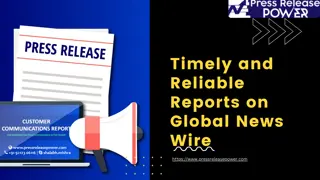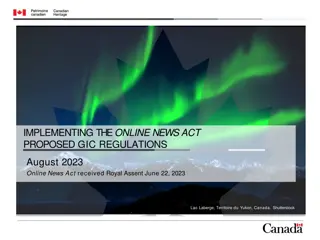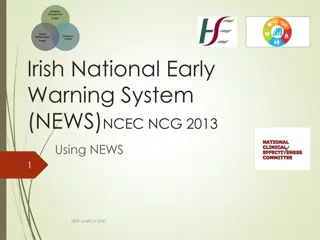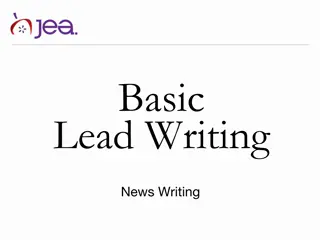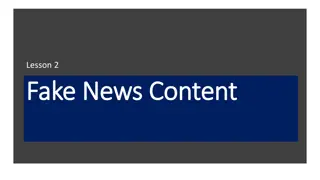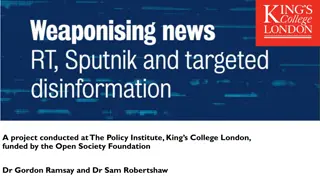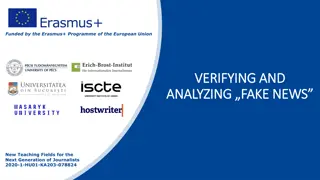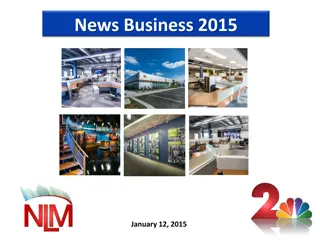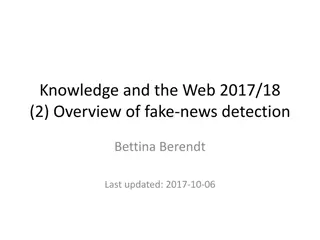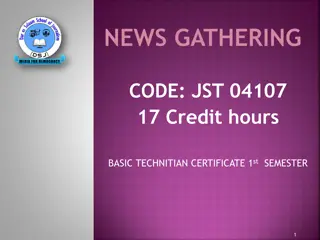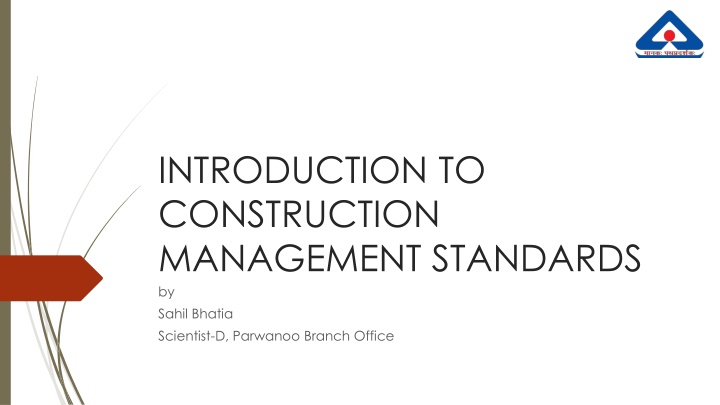
Comprehensive Construction Project Management Standards Overview
Explore IS 15883 - a comprehensive series of Indian Standards for Construction Project Management, defining and guiding the discipline for ensuring quality, safety, and efficiency in construction projects from start to finish. Dive into the various parts and guidelines under IS 15883, such as General, Time Management, Cost Management, Quality Management, and more. Understand the key principles, project life cycle stages, organizational structures, documentation importance, and implementation strategies outlined in these standards to enhance construction project management practices.
Download Presentation

Please find below an Image/Link to download the presentation.
The content on the website is provided AS IS for your information and personal use only. It may not be sold, licensed, or shared on other websites without obtaining consent from the author. If you encounter any issues during the download, it is possible that the publisher has removed the file from their server.
You are allowed to download the files provided on this website for personal or commercial use, subject to the condition that they are used lawfully. All files are the property of their respective owners.
The content on the website is provided AS IS for your information and personal use only. It may not be sold, licensed, or shared on other websites without obtaining consent from the author.
E N D
Presentation Transcript
INTRODUCTION TO CONSTRUCTION MANAGEMENT STANDARDS by Sahil Bhatia Scientist-D, Parwanoo Branch Office
IS 15883- Construction Project Management What is IS 15883? A comprehensive series of Indian Standards for Construction Project Management Guidelines formulated by the Bureau of Indian Standards. Defines Construction Project Management as the discipline and process of managing the complexities of construction projects from inception to completion Ensures quality, safety, and efficiency in construction projects.
Standards Published under IS 15883 IS 15883 (Part 1)- General IS 15883 (Part 2)- Time Management IS 15883 (Part 3)- Cost Management IS 15883 (Part 4)- Quality Management IS 15883 (Part 5)- Health and Safety Management IS 15883 (Part 6)- Scope Management IS 15883 (Part 7)- Procurement Management IS 15883 (Part 8)- Risk Management IS 15883 (Part 9)- Communication Management IS 15883 (Part 10)- Human Resource Management IS 15883 (Part 11)- Sustainability Management IS 15883 (Part 12)- Integration Management
IS 15883 Part 1- General Guidelines Overview scope Defines construction management. Sets the framework organization, and control. Emphasizes stakeholder communication and documentation. the and application of for project planning,
IS 15883 Part 1- General Guidelines Key Principles Project Life Cycle: Outlines stages from initiation to closure. Organizational Structures: Defines roles and responsibilities. Documentation: Importance comprehensive records. of maintaining
IS 15883 Part 1- General Guidelines Implementation Strategies Establish clear project objectives. Develop a robust project management plan. Ensure regular monitoring and control of project activities.
IS 15883 Part 2- Time Management Overview for scheduling Guidelines management. Techniques for creating and maintaining project timelines. Emphasizes critical path method (CPM) and Gantt charts and time
IS 15883 Part 2- Time Management Time Management Techniques Critical Path Method (CPM): Identifying the longest sequence of tasks. Gantt Charts: Visual representation of project schedule. Milestone Charts: Key dates and deliverables tracking.
IS 15883 Part 2- Time Management Best Practices Regular schedule updates and reviews. Incorporate buffer times for risk mitigation. Use of project management software for tracking.
IS 15883 Part 3- Cost Management Overview estimating, Budgeting, techniques. Methods for financial planning and expenditure tracking. Emphasizes cost variance analysis and value engineering. and cost control
IS 15883 Part 3- Cost Management Cost Management Techniques Cost Estimation: Predicting project expenses accurately. Budgeting: Allocating funds to project activities. Cost Control: Monitoring and controlling project costs.
IS 15883 Part 3- Cost Management Best Practices Develop a comprehensive cost management plan. Regularly update cost estimates and budgets. Use Earned Value techniques for cost performance analysis. Management (EVM)
IS 15883 Part 4- Quality Management Overview Focuses on maintaining quality throughout the project lifecycle. Introduces quality assurance and quality control measures. Emphasizes inspections, documentation. testing, and
IS 15883 Part 4- Quality Management Quality Management Techniques Quality Assurance (QA): Ensuring processes are followed correctly. Quality Control (QC): Inspecting and testing deliverables. Continuous Improvement: Implementing lessons learned for future projects. Define Roles and responsibilities in organization structure for quality management
IS 15883 Part 4- Quality Management Best Practices Develop a quality management plan. Conduct regular quality audits and reviews. Engage all stakeholders improvement initiatives. in quality
IS 15883 Part 5- Health and Safety Management Overview Guidelines for ensuring safety in construction projects. Covers hazard identification, risk assessment, and control measures. Emphasizes safety training preparedness. and emergency
IS 15883 Part 5- Health and Safety Management Health and safety Management Techniques Hazard Identification: safety risks. Risk Assessment: Analyzing and prioritizing risks. Control Measures: Implementing strategies to mitigate risks. Recognizing potential
IS 15883 Part 5- Health and Safety Management Best Practices Develop a comprehensive safety management plan. Conduct regular safety training and drills. Foster a safety-first culture within the project team.
IS 15883 Part 6- Scope Management Overview Scope projects involves defining and controlling what is included and excluded in the project. It ensures includes all the work required, and only the work required, to complete the project successfully. management in construction that the project
IS 15883 Part 6- Scope Management Scope Management Techniques Breakdown Structure decomposition of the accomplish the project deliverables. Scope Statement: A document that defines the project scope, including boundaries, and acceptance criteria. Scope Verification: Techniques to formally accept completed project deliverables. Work (WBS): scope objectives A hierarchical of work and create total to objectives, deliverables,
IS 15883 Part 6- Scope Management Best Practices Define Clear Objectives: Establish and document clear project objectives and deliverables from the outset. Regular Updates: Continuously update and manage scope documentation to reflect changes and ensure alignment with project goals. Change Control: Implement a robust change control process to manage scope changes effectively.
IS 15883 Part 7- Procurement Management Overview management goods and sources Procurement acquiring external requirements. It encompasses selecting, and managing suppliers and contracts. involves from project services fulfill to planning, soliciting,
IS 15883 Part 7- Procurement Management Procurement Management Techniques Bid Evaluation: Analyzing and comparing bids from potential suppliers to select the best option. Supplier Selection: Choosing suppliers based on criteria such as cost, quality, and reliability. Contract Management: Managing contracts to ensure that the supplier meets their obligations.
IS 15883 Part 7- Procurement Management Best Practices Comprehensive Procurement Plan: Develop a detailed procurement plan outlining procurement strategies, timelines, and responsibilities. Supplier Relationships: Maintain strong relationships with suppliers to ensure quality and timely delivery of goods and services. Regular Reviews: Conduct regular reviews of supplier performance and contract compliance.
IS 15883 Part 8- Risk Management Overview Risk management involves identifying, analyzing, and responding to project risks to minimize their objectives. It aims to proactively manage potential threats and opportunities. impact on project
IS 15883 Part 8- Risk Management Risk Management Techniques Risk Identification: Techniques such as brainstorming, SWOT analysis, and risk checklists to identify potential risks. Risk Assessment: Evaluating the likelihood and impact of identified risks using qualitative and quantitative methods. Risk Mitigation: Developing strategies to reduce the likelihood and impact of risks, including avoidance, transfer, and mitigation plans.
IS 15883 Part 8- Risk Management Best Practices Risk Management Plan: Develop a comprehensive risk management plan outlining risk management processes, tools, and responsibilities. Regular Reviews: Conduct regular risk assessments and update risk management strategies as needed. Stakeholder Involvement: Engage stakeholders in the risk management process to ensure comprehensive risk identification and management.
IS 15883 Part 9- Communication Management Overview Communication management ensures timely and appropriate collection, dissemination, and storage of project information. Effective communication is crucial for project success satisfaction. generation, and stakeholder
IS 15883 Part 9- Communication Management Communication Management Techniques Communication Plan: communication objectives, stakeholders, methods, and frequency. Information Distribution: Techniques to ensure that information is distributed to the right people at the right time. Performance Reporting: Regular reporting of project status, progress, and performance to stakeholders. A document outlining
IS 15883 Part 9- Communication Management Best Practices Foster channels Open communication members and stakeholders. Regular Updates: Provide regular updates and reports to keep stakeholders informed about project progress and issues. Feedback Mechanisms: mechanisms to gather input and address concerns promptly. Channels: open among and transparent project team Implement feedback
IS 15883 Part 10- Human Resource Management Overview Human resource management involves planning, acquiring, managing project team members to achieve project objectives. It ensures that the project has the right people with the right skills. developing, and
IS 15883 Part 10- Human Resource Management HR Management Techniques Recruitment and acquiring the necessary project team members. Training and Development: Providing training and development opportunities to enhance team members' skills and competencies. Performance Management: evaluating team performance alignment with project goals. Staffing: Identifying and Monitoring and to ensure
IS 15883 Part 10- Human Resource Management Best Practices HR Management Plan: Develop a comprehensive HR management plan outlining roles, responsibilities, and resource requirements. Team Building: Foster a collaborative and motivated project team through team-building activities and recognition programs. Continuous Development: Provide continuous training and development opportunities to enhance team skills and performance.
IS 15883 Part 11- Sustainability Management Overview management sustainable projects impact Sustainability integrating construction environmental social and economic benefits. It focuses on goals. involves practices to and into minimize promote long-term sustainability
IS 15883 Part 11- Sustainability Management Sustainability Management Techniques Sustainable Practices: Implementing practices such as green building, waste efficiency. Environmental Impact Assessments: potential environmental activities and developing mitigation plans. Sustainability Reporting: sustainability metrics and performance. reduction, and energy Assessing construction the impacts of Regular reporting on
IS 15883 Part 11- Sustainability Management Best Practices Green Building Standards: Implement green building standards and certifications such as LEED. Stakeholder Engagement: Engage stakeholders in sustainability initiatives to ensure buy-in and support. Continuous Monitoring: Regularly monitor and report sustainability performance improvement. to identify areas for
IS 15883 Part 12- Integration Management Overview management Integration coordinating all aspects of the project to ensure that project objectives are met. It focuses on aligning project activities and resources to achieve a cohesive and successful outcome. involves
IS 15883 Part 12- Integration Management Integration Management Techniques Integration Plan: outlining how different coordinated. Integrated Change Control: A process to manage changes to project scope, schedule, and costs in an integrated manner. Project Coordination Meetings: Regular meetings to coordinate project activities and resolve issues. Project comprehensive project elements A plan be will
IS 15883 Part 12- Integration Management Best Practices Plan: Develop Comprehensive project integration plan to guide project coordination and execution. Change Control Process: Implement a robust change control process to manage changes effectively. Consistent Alignment: Ensure consistent alignment of project activities and resources with project goals and objectives. a comprehensive



